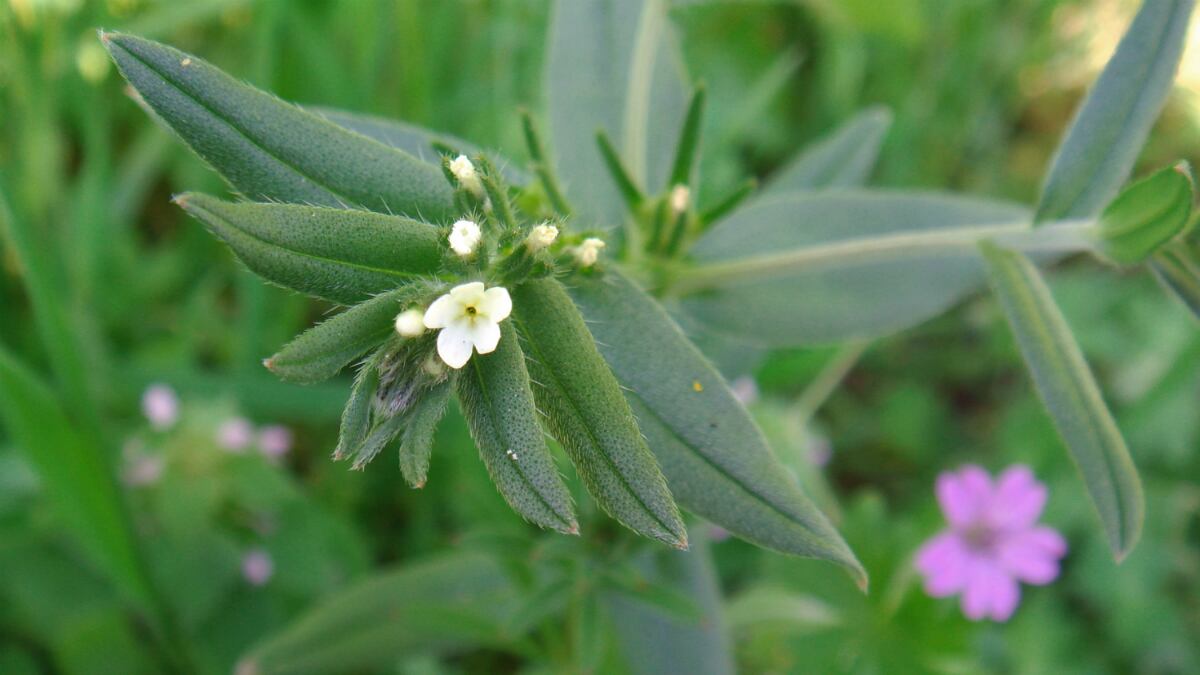The plant in question, Buglossoides arvensis (also called field or corn gromwell, or bastard alkanet), can be found in the Indian state of Jammu and Kashmir, but can be adapted to the country's other agro-climatic conditions.
The research team, led by Dr RV Sreedhar, reported in a recently published study in the Journal of Oleo Science that B. arvensis was rich in polyunsaturated fatty acids (PUFAs) such as omega-3, which include gamma linolenic acid (GLA) and alpha linolenic acid (ALA).
More significantly, B. arvensis also contains stearidonic acid (SDA), which is considered a vital pre-cursor in the bio-synthesis of omega-3 acids present in fish oils.
Plant particularity
According to the CFTRI, there have been other plant sources omega-3 fatty acids, such as chia and flax seeds, but they contain only ALA.
The consumption of ALA-rich plant oils does not confer the similar health benefits of omega-3 EPA and DHA as the efficiency of conversion of ALA to EPA and DHA in humans is limited, due to catalysis by the hepatic enzyme Delta-6 desaturase (D6D).
With B. arvensis oil, however, clinical trials have shown that dietary consumption of plant oils rich in SDA increase the tissue EPA levels more efficiently than plant oils rich in ALA, because it bypasses this catalysis.
At the same time, consumption of B. arvensis oil can increase the body's circulating omega-3 PUFA levels in a dose-dependent fashion, thereby effectively lowering inflammation, along with the risk of cancer and neuro-degenerative disorders.
Speaking to NutraIngredients-Asia, Sreedhar said: "B. arvensis oil is rich in PUFAs, with 19% to 20% of nutritionally important omega-3 fatty acids, including stearidonic acid, which is generally absent in regular oil seed crops.
"It also has good amounts of GLA and ALA. Consumption of this oil is known to increase tissue EPA levels more efficiently than consumption of oils rich in ALA, like flaxseed or chia seed oil.
"This oil needs to be consumed in the form of soft-gel capsules, salad dressing, or powders, or in protein or cereal bars. It may not be suitable as cooking medium as it has a low smoke point and degrades upon heating, losing its nutritional qualities.
"With increasing health consciousness, changing lifestyles and eating habits, demand for these kinds of products is increasing continuously."
Cultivation and commercialisation
After the initial study, the CFTRI — an affiliate of the Council of Scientific and Industrial Research — will collaborate with local agricultural universities and research institutes to research the plant's agronomic properties.
Sreedhar said that following these collaborations, the CFTRI planned to develop suitable cultivation practices, as well as the necessary agro-technology for commercial cultivation of the crop, therefore increasing its potential for use in various functional food products and dietary supplements for Indian consumers.
Director of the Council of Scientific and Industrial Research, Dr KSMS Raghavarao, told NutraIngredients-Asia: "We welcome industry partnerships in helping to commercialise this crop. The association can be extended to the fields, as well as downstream processing for oil extraction or for value addition."
The commercialisation of B. arvensis presents a significant opportunity for omega-3 in the vegetarian / vegan segment, which was especially important in India due to its significant vegetarian / vegan population.
Furthermore, India has a variety of public health concerns thanks to widespread micronutrient deficiencies in the country. While the vitamins and supplements sector has been growing steadily among younger, more well-educated consumers in urban areas, those in rural areas would rather avoid taking supplements and rely solely on natural food sources.
When asked how B. arvensis oil compares to other promising and highly publicised plant sources of omega-3, such as CSIRO's canola oil, Sreedhar said, "This is a non-GMO, natural vegetarian source of omega-3 fatty acids.
"Appropriate cultivation practices need to be developed for commercialisation of the oil, but beyond that, the final product consumers will get would have involved very little processing and no modification at all."



